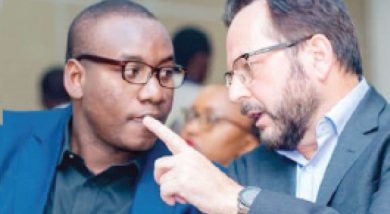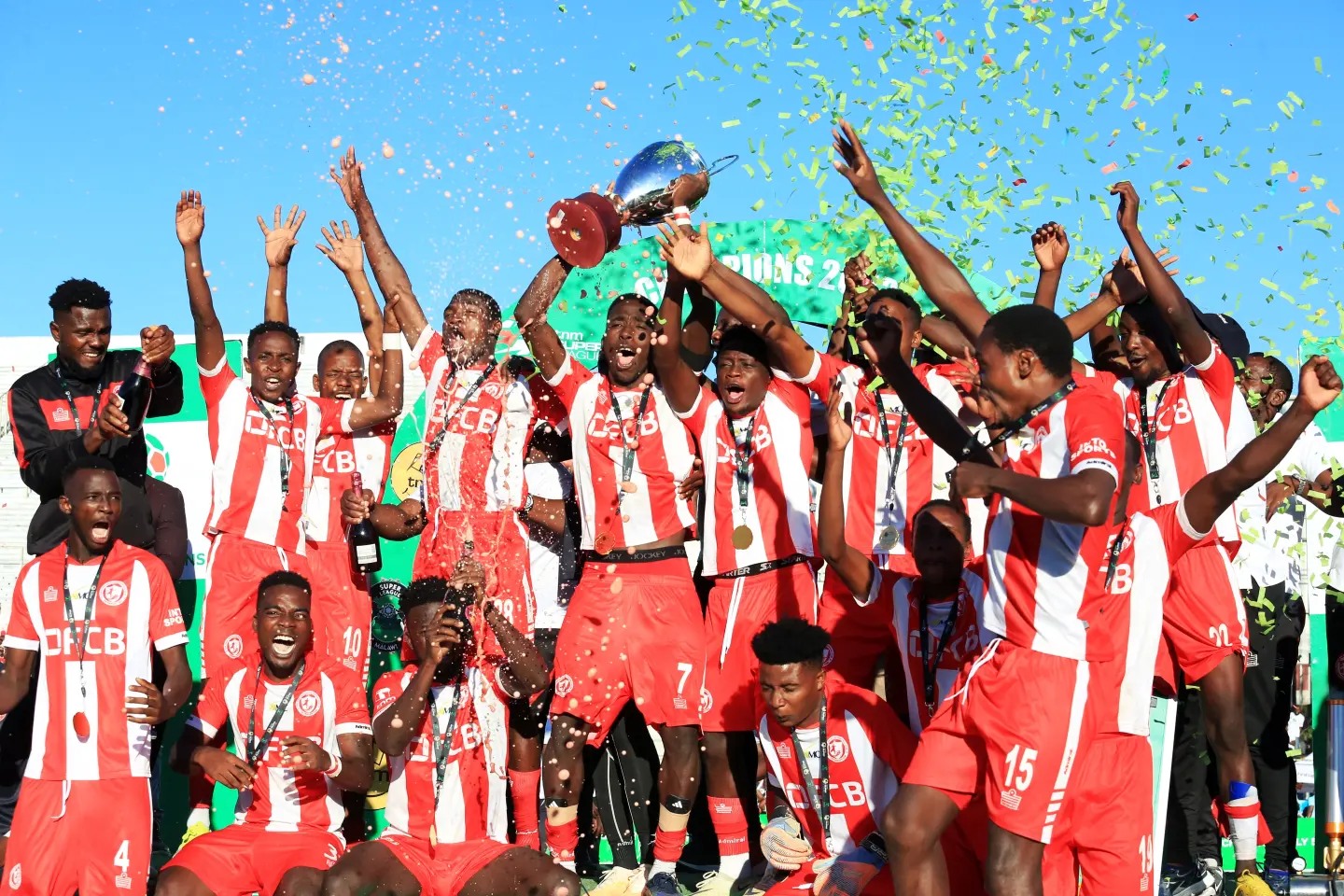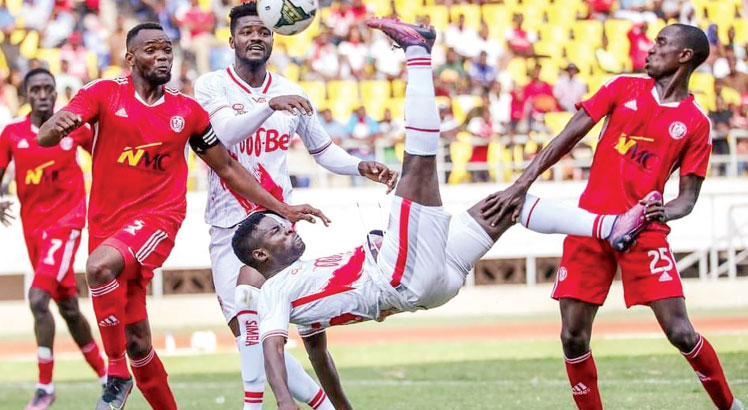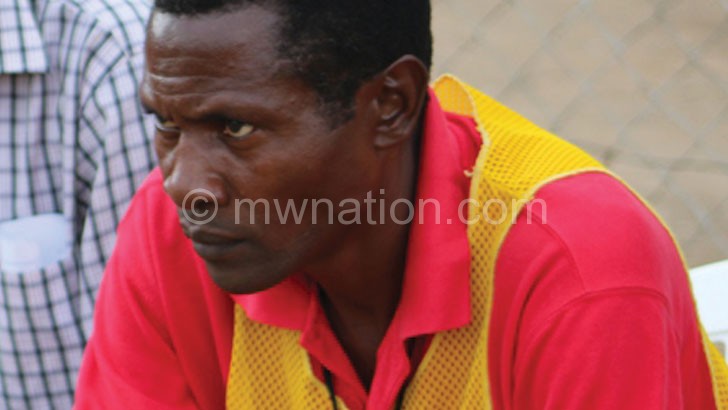Shaking off Flames’ dust

The Flames lackluster performance will persist unless all stakeholders join hands to restructure the country’s entire football system, analysts have observed.
The analysts also say the argument that the Flames’ failure to make the grade in competitions such as the World Cup, African Cup of Nations and Cosafa Senior Challenge Cup is a result of poor administration at Football Association of Malawi (FAM) does not hold water.
The pitiable shape of Malawi football was brought to light during the recent Flames’ 2-0 defeat in Nigeria a fortnight ago.
The loss came despite some local enthusiasts’ firm belief that Belgian coach Tom Saintfiet would help to banish the national team’s demons in the contest.
Of course, with the existing circumstances, the Flames qualified for the 2010 Africa Cup of Nations in Angola where they stunned North African giants Algeria with a 3-0 thumping in their opening match.
But observers think that happened out of sheer luck and there is need to put the house in order.
Former Flames captain Peter ‘Mjojo’ Mponda and sports analyst Dean Pinto believe reverting to football structures that were fashionable in the late 1970s and early 1990s would be the best solution.
“Then, physical education was a compulsory subject in schools and we had school-based competitions that nurtured talents before getting to junior leagues such as the Under-17 and graduating into the elite league.
“There was no way an individual could jump into an elite league and earn national team selection without going through such a developmental process,” said Mponda, who was the national team’s central defender for 12 years since his debut against Zambia in 1998.
However, Pinto suggested the introduction of competitions that can see the Ministry of Education and FAM partnering targeted corporate organisations for sponsorship. He said before getting to competitive leagues, individuals should first undergo school and age-group based contests.
In school-based events, he said, the Ministry of Education can run separate primary, secondary and tertiary education championships in partnership with education material suppliers so that students can learn skills and be easily identified and monitored.
He said FAM should be responsible for age-group based contests that can see Under-14, Under-17 and Under-20 players, regardless of their education background, participating in competitions with the help of food and beverage companies in order to spot blossoming rural stars.
“Then, the cream from these two lines of contests can graduate into the elite competitive league where they can be refined before being incorporated into the national team. Service providers such as banks and mobile companies can be the targeted sponsors.
“This is the system that made the Flames a powerful force in Africa about two decades ago and it can work today,” said the former Mighty Wanderers player.
Pinto concurred with Sports Writers Association of Malawi (Swam) president Peter Kanjere that basic playing grounds in communities, schools and football clubs should be a priority if Flames are to become a team to be reckoned with in future events.
Kanjere said it is also essential for national team players to have particular physical attributes, especially, in specialised positions of defence and striking force.
“We should stop reducing football to just kicking the ball. We should talk less about the final product, which is the Flames, but pay more attention to the football production chain through long-term investing in youth football, incentives, nutrition and the psychology of the game,” he said.
Observers also pointed out FAM’s aggressiveness in their marketing drive as key aspect to this restructuring process. They said FAM needs to exploit business opportunities like the sale of Flames’ replica jerseys and organising formal fundraising activities such as gala awards rather than always waiting for last-minute funding from government for national team activities.
According to Pinto, FAM should partner a less expensive sportswear brand in the Flames’ replica jersey business so that the paraphernalia can be marketable and affordable among local soccer fans. Currently, FAM sells Puma-branded jerseys at K5 000 each.
“If 95 percent of local supporters struggle to pay K500 to watch an international match, how can you expect them to buy a replica jersey that costs 10 times more? FAM needs to be realistic in this marketing endeavour by linking with a brand that would make the sportswear affordable,” he said.
However, FAM commercial manager Casper Jangale said they are already in the process of revising the replica jerseys business.
“The venture has taught us to understand our markets better. This was the first time merchandising of local sports products was introduced as we mostly relied on gate collections for national team duties. We are now going to change the strategy,” he said.
On the need to introduce three-category competitions, Jangale feels FAM is already doing something on football development from the grass roots through the Grass roots Football Programme and the Football for Health Programme, which are being implemented in conjunction with Fifa.
He said the programmes, which target children aged six to 12 and primary school-going children, is the fundamental part of developing the game.
“You do not develop skills at that level through competitions, but by creating opportunities for young people to learn the basics about football and be able to develop their skills. May be from Under-14 and Under 17 and even Under-20, we now need these kinds of competitions.
“But, currently, we already have the Under-20 FMB League plus the Airtel Rising Star as well as the Coca-Cola Schools Competition for Under-17 players,” Jangale said.






Indeed it has been a tradition to just think of short term results instead of concentrating on long term investment.There are no shortcuts in football,you have to lay down structures that will give consistent positive results in order to become a force to reckon with.
Nutrition,physical education,playing fields,and academies in general are all important for a player to develop.However,attention should also be paid to links between Malawi’s youth and senior teams and their overseas’s counterparts.West Africans have progressed because aside from football academies,their youth teams and professional clubs have strong links with clubs in Europe.Additionally,those countries have so many licensed FIFA agents that compete for talented players to be sold to European clubs.The economies of countries like Mali,Guinea,Burkina Faso,Togo,Cameron,and Senegal to name just a few,are not different from Malawi’s economy, meaning to say those countries are not rich but out of their limited resources,at least they have managed to invest and achieve big in football.
Malawi started well in the seventies and early eighties but things turned into a downward spiral after reaching the nineties.By now the country would have had so many youth academies and teams,several players in Europe,and a professional league,but alas! nobody seemed to care much about football development.But all is not lost,and there is need to revisit where everything went wrong.